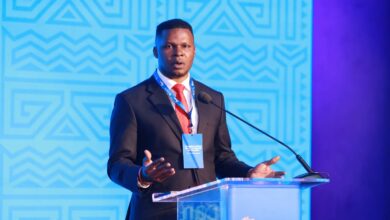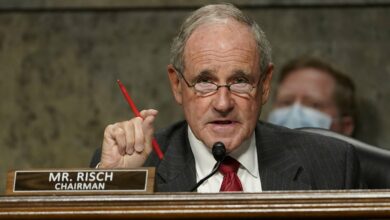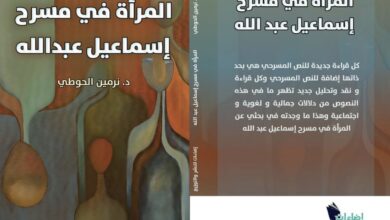Mohamed al-Qolali, the head of Egypt's Atomic Energy Authority (EAEA), spoke with Al-Masry Al-Youm about a disruption that occurred this April at Egypt's dormant Anshas reactors, which lie 60km from Cairo.
Al-Masry Al-Youm: What happened at the Anshas site?
Mohamed al-Qolaly: What happened is that the reactor director, Abdel Rahman al-Qafass, and the operating manager, operated [one of the site's two reactors] without receiving safe operation permission from the Nuclear Safety Authority, which is a grave violation of the new law relating to nuclear matters.
Al-Masry: And what happened during operation?
Al-Qolaly: One water cooling pump broke down, but was immediately fixed.
Al-Masry: Had this had any negative consequences, such as radioactive leakage?
Al-Qolaly: Not at all. We checked all operations and were assured no damages took place inside the reactor or in the neighboring area.
Al-Masry: How can the reactor director operate the reactor without receiving permission from the operating manager?
Al-Qolaly: The reactor director is responsible for all procedures relating to the reactor. He takes operation orders from the manager in charge. What was reported, about the absence of an operation manager, is untrue, but operations were not carried out properly, which led to faults.
Al-Masry: As head of the Atomic Energy Authority, don’t you consider the Anshas reactors to be randomly operated, especially at a time when we are about to embark on the huge project of Dabaa?
Al-Qolaly: Unfortunately, after this problem happened, conflicts among workers were discovered. And it’s known to everyone that there are personal conflicts among officials.
Al-Masry: What were the measures taken against the reactor director, as the one in charge for what happened?
Al-Qolaly: He was referred to a disciplinary board, which will penalize him. He is being investigated for negligence and his punishment will then be decided upon.
Al-Masry: How is it possible that you allowed the director and operation staff to work even though their license had expired?
Al-Qolaly: An expired license doesn’t mean its holder doesn’t know how to operate the reactor. Moreover, the license was valid but its duration had ended. A problem happened during its renewal.
Al-Masry: Does a pump disruption mean maintenance doesn’t take place as planned?
Al-Qolaly: Maintenance takes place regularly, but the water cooling pump is a machine that could break down at any time. We are applying penalties based on how the disruption was dealt with.
Al-Masry: Has the IAEA commented on the Anshas incident?
El-Qolaly: No, because we are paying all our attention to the security aspect. Before the incident, IAEA inspectors were present in order to check on the operation and security systems, and concluded that the reactor was in a need of renovation. During that period, we sought the agency’s assistance in reviewing these systems. The agency reciprocated and provided us with a number of recommendations for restoring the plant. Based on that, we contacted Russia, the reactor’s manufacturers, who made us financial and technical offers. These offers are currently being studied, in preparation for signing a contract with the Russian company and launching the renovation program.
Al-Masry: Will the restoration process cover all of the reactor’s units?
El-Qolaly: In fact, all of the systems have been checked. The Russians were preceded by Hungarians, who installed a store for the fuel exhausted by the reactor. This is evidence that reviews are made periodically.
Al-Masry: Will Egypt see any visits by international inspectors soon?
El-Qolaly: Two visits by IAEA agents have just ended. The first was in July to check on the security systems for the unit built by INVAP, the Argentinian company. The other visit was on 4 August, which tested security measures for the radioisotopes production unit, which was installed for medical purposes.
Al-Masry: Can Israel use its nuclear weapons against neighboring states?
El-Qolaly: No, becaues if it makes such an insane move, it will be the first one to be affected.
Al-Masry: So how can you explain Israel’s stockpiling of such a huge amount of nuclear bombs?
El-Qolaly: Israel has always had this security obsession and constant fears of its neighbors, but it will never use its nuclear weapons because the radioative impact will remain for millions of years.
Al-Masry: Does the operation of the old Israeli Dimona reactor, which lies on our eastern borders, constitute a danger?
El-Qolaly: We are watching Dimona continually through our detection networks in Sinai, which operate around the clock. All the signals are normal and no increases in radiation has been discovered. We continue to send missions to Sinai in order to analyse air, soil, and water samples.
Al-Masry: What is the reality behind the rumors of radioactive leakage from EAEA-run centers?
El-Qolaly: It's untrue. Throughout its 60-year history, the authority has not seen any leaks from its units. Any news emerging in that respect are used to attack the authority’s board.
Al-Masry: How can the authority's work continue thoroughly, in light of the low salaries of its employees?
El-Qolaly: We are heeding current conditions in Egypt which require rationing in all aspects. But unfortunately, the salaries paid to workers at the authority are incomparable with payments on nuclear projects in neighboring states. These neighboring states have started to compete strongly with us by attracting local manpower who see no restrictions in Egypt’s administrative laws.
Al-Masry: Is it true that there are disputes between your authority and the the National Center for Nuclear Safety and Radiation Control?
El-Qolaly: There have been no disagreements on nuclear safety, which is our top concern in any step we take. But why should I shut down the facility while there is permission for operation?
Translated from the Arabic Edition.




